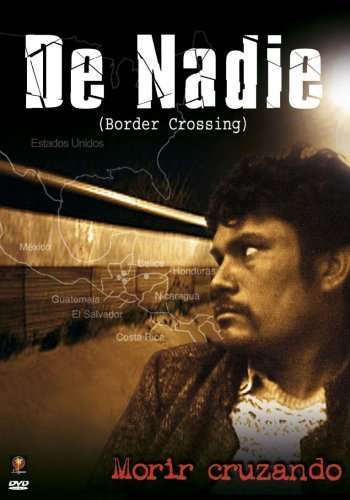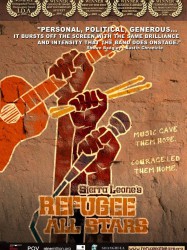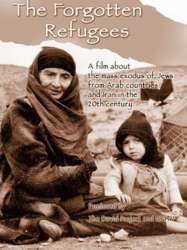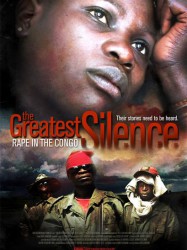De Nadie est un film de genre Documentaire
De Nadie (2005)

Si vous aimez ce film, faites-le savoir !
- Infos
- Casting
- Infos techniques
- Photos
- Vidéos
- Passages TV
- Citations
- Personnages
- Musique
- Récompenses
De Nadie (English title: No One) is a documentary by Mexican filmmaker Tin Dirdamal on the impoverished Central Americans who leave their countries in hope of a better life in the United States. It premiered in 2005 and was shown at different international film festivals, winning the Sundance Film Festival audience award for World Documentary in 2006.
The film follows a number of refugees who have to cross Mexico, about 4,000 kilometers, before reaching the US border. On their way through Mexico they put their remaining money, dignity, health and life on the line.
The soundtrack was written by Mexican composer Alfonso M.
Commentaires
Postez un commentaire :
Suggestions de films similaires à De Nadie
Il y a 8856 ayant les mêmes genres cinématographiques, 3242 films qui ont les mêmes thèmes (dont 52 films qui ont les mêmes 3 thèmes que De Nadie), pour avoir au final 70 suggestions de films similaires.Si vous avez aimé De Nadie, vous aimerez sûrement les films similaires suivants :

The Tree That Remembers (2002)
, 50minutesOrigine Canada
Genres Documentaire
Thèmes L'immigration, Documentaire sur le droit, Documentaire historique, Documentaire sur une personnalité
Note74%






No Man's Land (2013)
, 30minutesOrigine Royaume-uni
Genres Documentaire
Thèmes L'immigration, Documentaire sur le droit, Documentaire sur une personnalité

V Poiskach Schastia (2005)
, 54minutesGenres Documentaire
Thèmes L'immigration, Religion, Documentaire sur le droit, Documentaire sur une personnalité, Documentaire sur la religion, Religion juive

Yodok Stories (2008)
Genres Documentaire
Thèmes L'immigration, Documentaire sur le droit, Documentaire sur une personnalité
Note74%






American Herro (2009)
, 57minutesOrigine Etats-Unis
Genres Documentaire
Thèmes La famille, L'immigration, Documentaire sur le droit, Documentaire sur une personnalité
Note69%






Origine Etats-Unis
Genres Documentaire, Musical
Thèmes L'immigration, La musique, Documentaire sur le droit, Documentaire sur la musique, Documentaire sur une personnalité, Musique
Note73%






The Forgotten Refugees (2005)
, 49minutesGenres Documentaire
Thèmes Afrique post-coloniale, L'immigration, Religion, Documentaire sur le droit, Documentaire sur la guerre, Documentaire historique, Documentaire sur une personnalité, Documentaire sur la religion, Politique, Religion juive
 , 1h
, 1hOrigine Etats-Unis
Genres Documentaire
Thèmes L'immigration, La mer, Transport, Documentaire sur le droit, Documentaire sur une personnalité
Note66%





 , 1h16
, 1h16Origine Etats-Unis
Genres Documentaire
Thèmes Afrique post-coloniale, L'immigration, Documentaire sur le droit, Documentaire sur la guerre, Documentaire historique, Documentaire sur une personnalité
Note71%





In 2006, producer/director Lisa F. Jackson travelled alone to the war zones of the Democratic Republic of the Congo documenting the plight of women and girls impacted by the conflicts there. She was "afforded privileged access" to the realities of life in Congo, and found "examples of resiliency, resistance, courage and grace". In a 2008 interview with NPR, Jackson said "I knew going to eastern Congo as a white woman alone in the bush with a video camera that I might as well have landed from a spaceship." Jackson had been a victim of gang rape thirty years earlier, and shared this experience with the survivors she interviewed. Much of the film features these women recounting their stories, which have left them "traumatised and isolated - shunned by society and their families, and suffering life-long health effects, including HIV." Context and background are discussed in interviews with doctors, politicians, peacekeepers, activists and priests. Jackson visits a clinic devoted to treating women with traumatic injury due to sexual violence, particularly cases of vesicovaginal and rectovaginal fistula. In addition, Jackson went out into the bush to interview some of the perpetrators, soldiers who spoke without apparent conscience about the women they had raped, and their often bizarre justifications. "You really can say that there's a culture of impunity in the Congo, where none of these men will face arrest for what they've confessed to me on videotape," Jackson noted. The focus of the film, though, is the stories of the victims, "who just poured their hearts out to me with these stories, including over and over again, please take these stories to someone who will make a difference.

Harga (2010)
, 27minutesOrigine France
Genres Documentaire
Thèmes L'immigration, Documentaire sur le droit, Documentaire sur une personnalité
Hichem rêvait de « harga » depuis tout petit. Un jour, il a pris la mer vers l'Europe, il a tenté le grand voyage interdit, sur un bateau de fortune avec 27 concitoyens, dont certains étaient des amis ; seul Hichem est revenu. D'autres Tunisiens racontent, de leur côté, pourquoi ils ont voulu ou voudraient quitter le pays : la misère, le chômage, l'impossibilité de se projeter dans l'avenir, l'impasse dans laquelle ils se trouvent.
 Connexion
Connexion